Papa Roach's guide to surviving life on the road
Jerry Horton talks touring
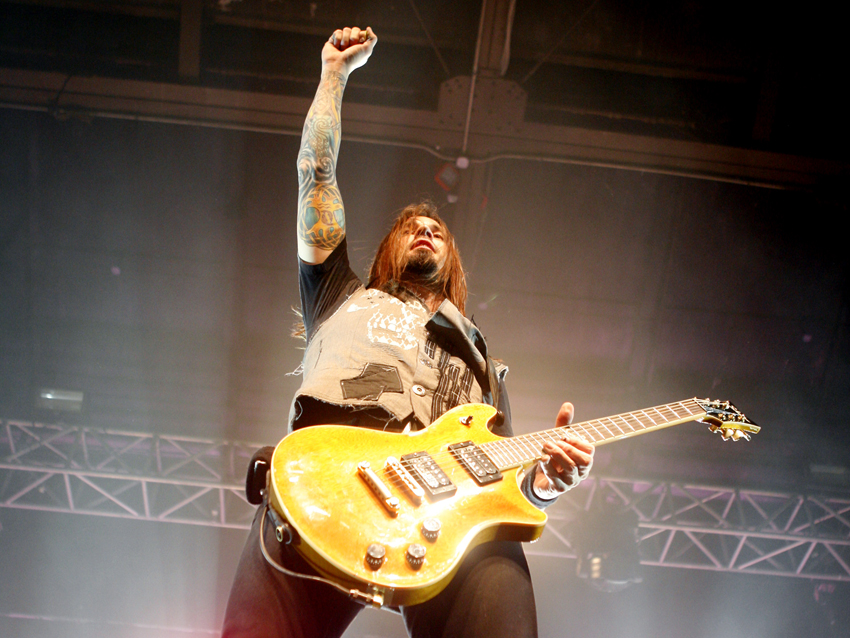
Papa Roach's guide to surviving life on the road
It's been 13 years since Northern California's Papa Roach first broke-through off the back of triple platinum debut album, Infest.
Like their namesake, the 'Roach has not just survived, but thrived – selling over 10 million albums worldwide, most recently releasing The Connection, which landed at 17 on the Billboard 200. If anyone has experienced the full impact of the changing face of live music in the 20th century, it's these guys.
As of this week they're off around the U.S. on the Carnival Of Madness tour with Shinedown, Skillet and In This Moment. To celebrate this epic run of summer rawk madness (the good kind, presumably), we cornered six-stringer Jerry Horton to find out how Papa Roach got their start live, how to conduct yourself on tour and his essential advice for bands on the road...
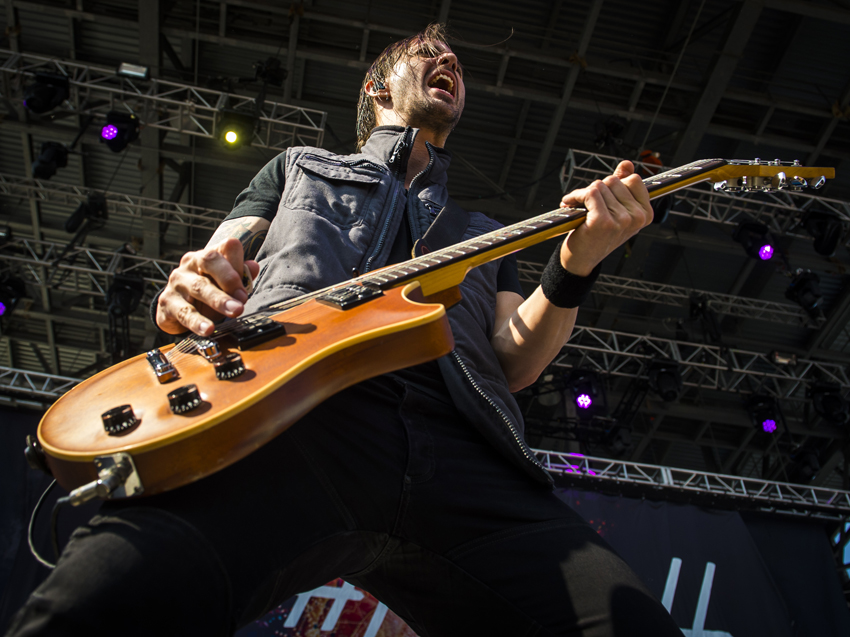
Trade shows with other bands to get started
"Before we got signed, we never really fully toured, we did weekend stuff within California. We had built a following in Northern California around Sacramento, San Francisco and San Jose.
"Then we basically found other bands that were sort of on the same level, but in Southern California, and we would trade shows. That actually worked out really well and we would eventually get to a point where we would do three Monday nights at [Legendary L.A. club] The Troubadour."

Look to your first fans for your first crew
"We did our first couple of tours in the US in a van with a trailer. We had a small crew – a tour manager, a guitar tech and a guy that was doing our merch.
"He was actually one of our first fans in L.A. who decided just to quit what he was doing and come on tour with us. We would basically run ourselves ragged and we didn't get a lot of sleep, but we still remember those times."
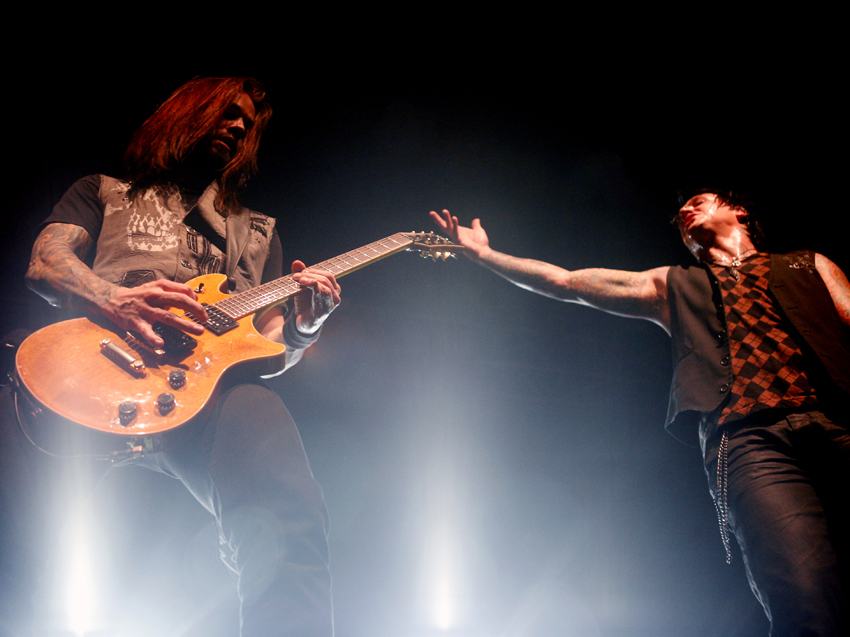
Keep an eye on your finances
"We still have to provide for our families and, nowadays with less people buying records, it's more dependent on the tour side of it.
"So we do whatever the budget permits. But at this point we're focussed on actually coming back with money from a tour. We used to not be worried about it – and that came back to bite us in the ass later on."
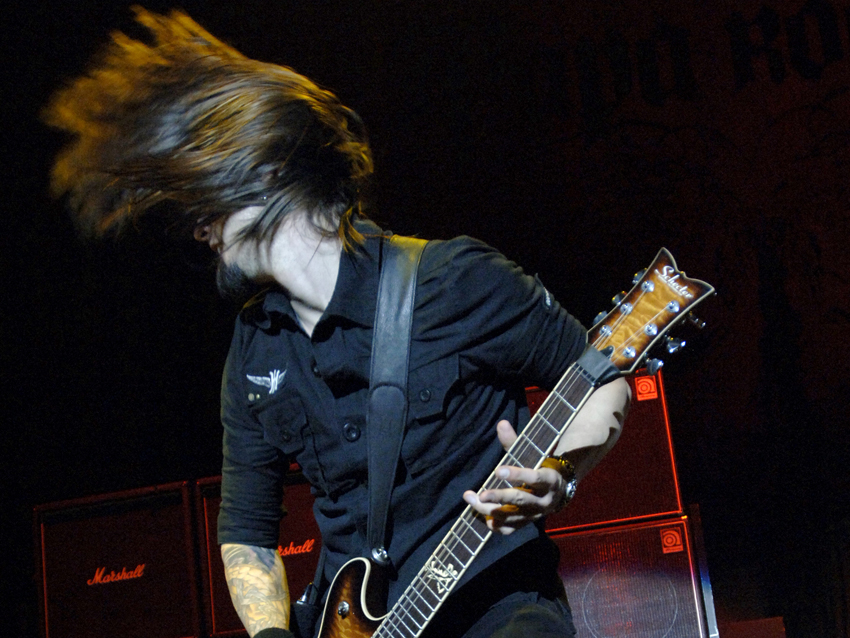
If you're playing with support bands, lead by example
"One of my favourite tours would be when we toured with Korn in 2001. They were this huge band and they were looking after us and showing us the ropes.
"I've heard of tours where the headliner will not allow the other bands to go to certain places on the stage, or they can't be as loud as the headliner, but there wasn't any of that sort of thing on that tour. That sort of set the tone for us when we would go out and headline and how we treated other bands."
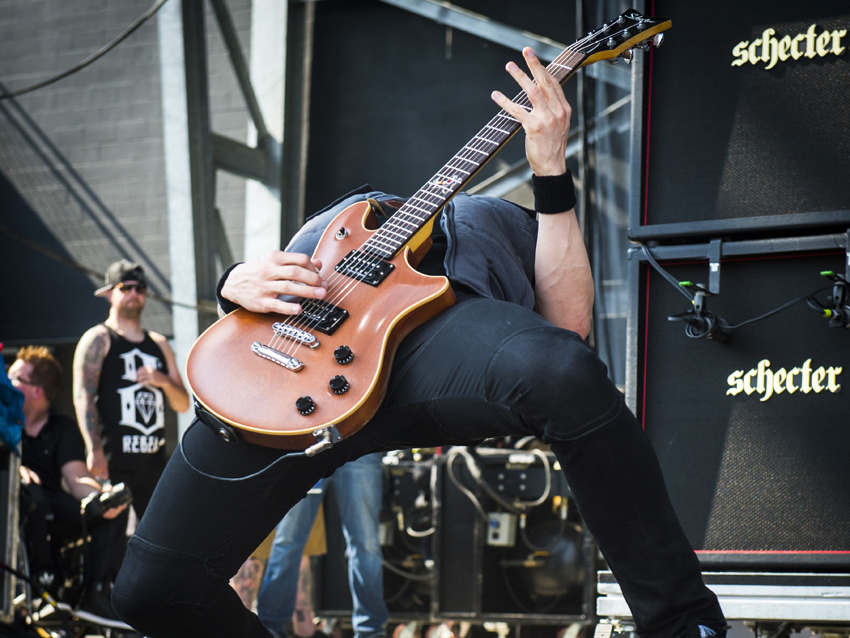
Always, always, always warm-up
"An hour before our set time we'll warm-up. I warm-up for about a half an hour and get dressed and stretch out a little bit.
"If I'm really tired I'll have an energy drink and get myself pumped up a little bit… I have five or six songs that I play along with. Most of them are Lamb Of God, so obviously good for warming up the fingers!
"Then anything else that I'm wanting to learn at the moment. On the last tour I was working on perfecting a Mother's Finest song."

Find a way to escape the routine
"I'm into photography, so I bring my cameras with me [on tour]. Sometimes I'll just go and walk around a city and shoot whatever catches my eye.
"It's a way for me to get out of the routine. It's very easy to get stuck in that routine where you wake up at a certain time, hang out for a little while, then you have to do interviews, then the show happens, then you hang out some more. It's one of the ways that you can break it up a bit."
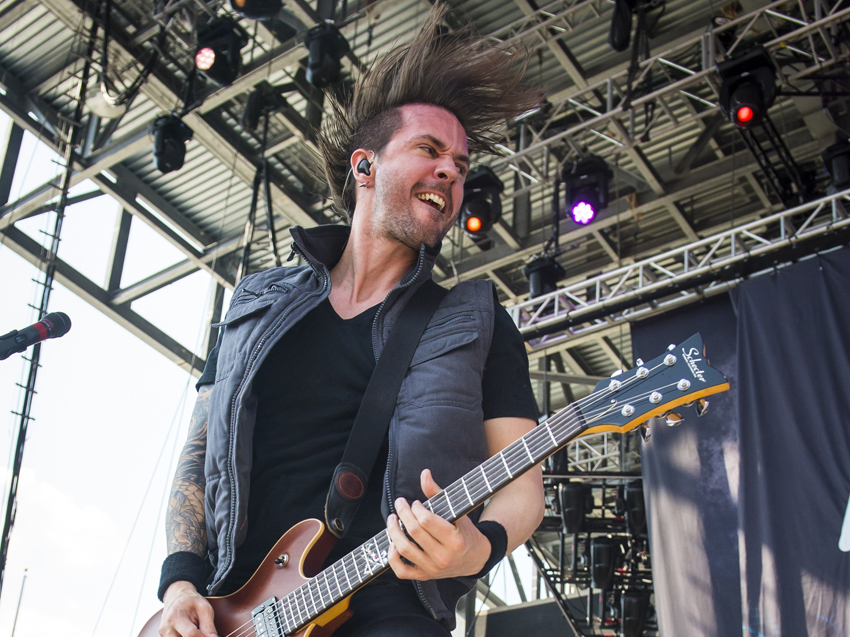
Know thy gear
"I'm trying out the Fractal Axe-FX. It's done a good job in allowing me to replicate everything, but I had major issues on this last tour.
"I messed with it at home and it sounded great in the headphones, then I got it on tour and it sounded like shit! We figured out that I was too hot on the front-end and not loud enough on the back-end.
"It meant I had to basically take my back-up, wipe it clean and start afresh… But it's been great in some ways. On this last European tour we did about nine days in Russia and it's fly dates everywhere, so not having to rely on rental gear was definitely a good thing."

Keep your rig simple
"Don't make your rig too complicated, because when something goes wrong a minute will seem like 10 minutes, or five minutes will seem like half an hour, depending on how bad things are…
"[On the guitars side] I have two [Schecter Jerry Horton] signature series models – it's based on the Solo-6, the single cutaway, and I have my custom paint job on it and the pickups that I like.
"I have those two as the main guitars and we pared down the tunings to simplify everything further, so we're doing drop-C# and drop-C."
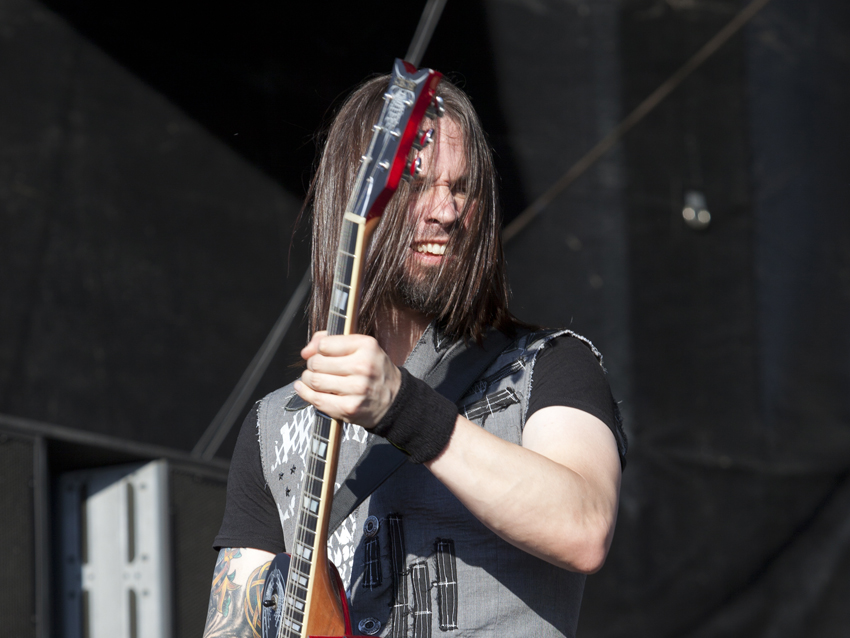
Always bring a back-up
"Always have a back-up, because at some point it's going to go down.
"It's not a question of 'if', it's only a matter of 'when', so don't get stuck. Early on, I remember on our first Warped Tour, I didn't have a back-up and I had to borrow somebody else's amp. Luckily we had made friends, but that's not a good feeling!"
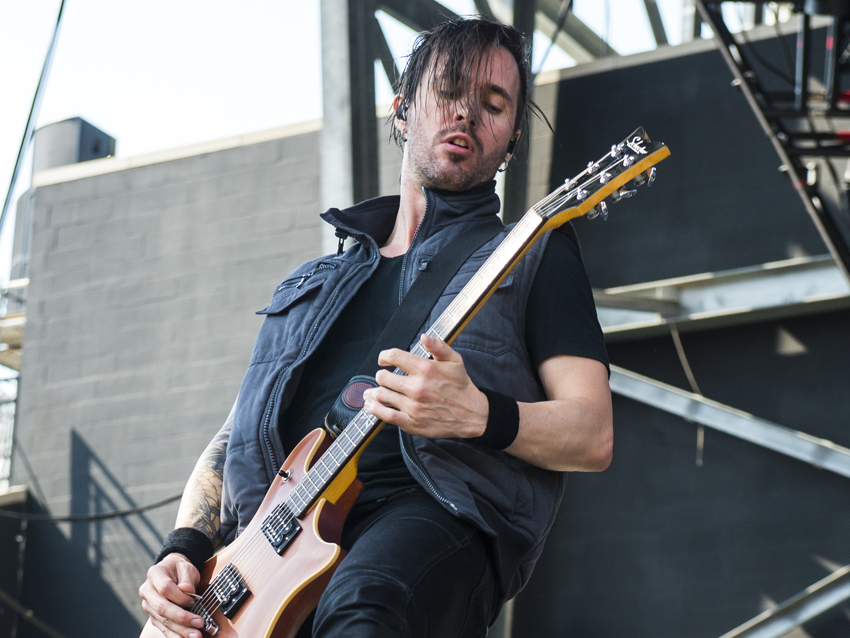
Listen to your live sound
"We tend to take [our arrangements] straight from the record and then play it live and listen to it.
"If there's something that pokes out too much then we'll make some adjustments here and there. It's a process and it doesn't happen right away. There's no formula for it.
"Over the years there's been a lot of trial and error… Also: trust the people that work for you. We take a lot of input from our front of house guy."
Matt is a freelance journalist who has spent the last decade interviewing musicians for the likes of Total Guitar, Guitarist, Guitar World, MusicRadar, NME.com, DJ Mag and Electronic Sound. In 2020, he launched CreativeMoney.co.uk, which aims to share the ideas that make creative lifestyles more sustainable. He plays guitar, but should not be allowed near your delay pedals.
